
SALTA Leadership Training
SALTA (Salud Ambiental Lideres Tomando Accion – Environmental Health, Leaders Taking Action) is a web-based, interactive leadership development curriculum that provides community leaders with skill-building training in community organizing, policy advocacy, building power, community health, environmental justice and effective communication.
SALTA is a key component to ensuring that EHC achieves our core mission. More than education, SALTA is integrated with EHC’s organizing and advocacy efforts to achieve environmental and social justice.
SALTA programs represent the organic educational efforts of the different campaigns, teams, leaders, and staff that make up EHC and were designed specifically for our leaders based on our local efforts. We began SALTA trainings in 1996, and now more than 2,000 individuals have been trained.
Developed and field tested by EHC staff and leaders during the past 15 years, SALTA uses a popular education approach that makes the training inclusive and accessible to all participants. Trainings are based on the knowledge, skills and real-world experiences of EHC staff, leaders and training participants.
Popular education, which has varying interpretations, is best defined by the practice where participants share their own understanding and feelings about a specific topic or issue and that understanding and feelings are considered valid. The idea of popular education (often described as “education for critical consciousness”) as a teaching methodology came from a Brazilian educator and writer named Paulo Freire, who was writing in the context of literacy education for poor and politically disempowered people in his country. It’s different from formal education (in schools, for example) and informal education (learning by living) in that it is a process which aims to empower people who feel marginalized socially and politically to take control of their own learning and to effect social change.
The SALTA sessions improve participants’ sense of belonging to a community as participants and stakeholders of their societies. They begin to see themselves as empowered members who can make change.
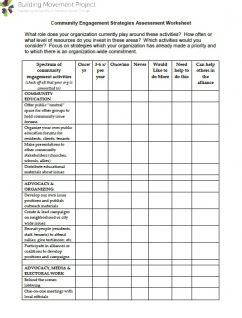
Community Engagement Assessment Worksheet
This tool helps agencies take stock of their current level of community engagement by presenting a set of activities and prompting agencies to think about how often they currently engage in each of these activities. The worksheet also helps agencies think about how they want to go about addressing this level of engagement and helps them think through their priorities in this area. (Developed by Margi Clarke and Emily Goldfarb, consultants to social change organizations.)
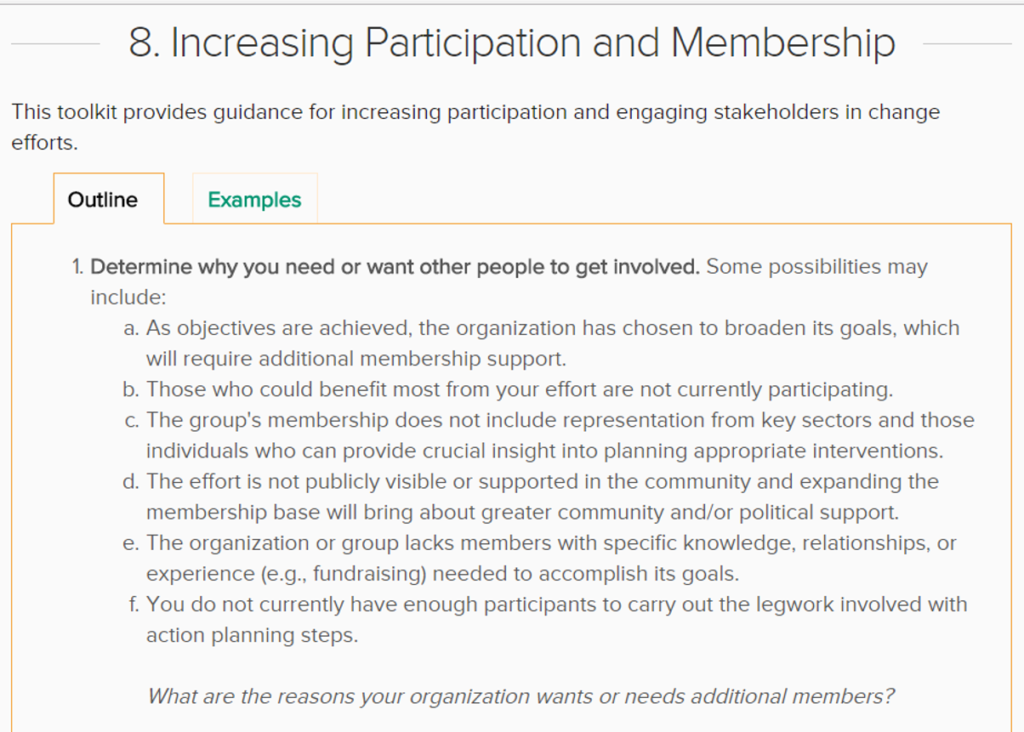
Increasing Participation and Membership in Community Change
This toolkit provides step-by-step guidance for increasing participation and engaging constituents and community members in a change process.
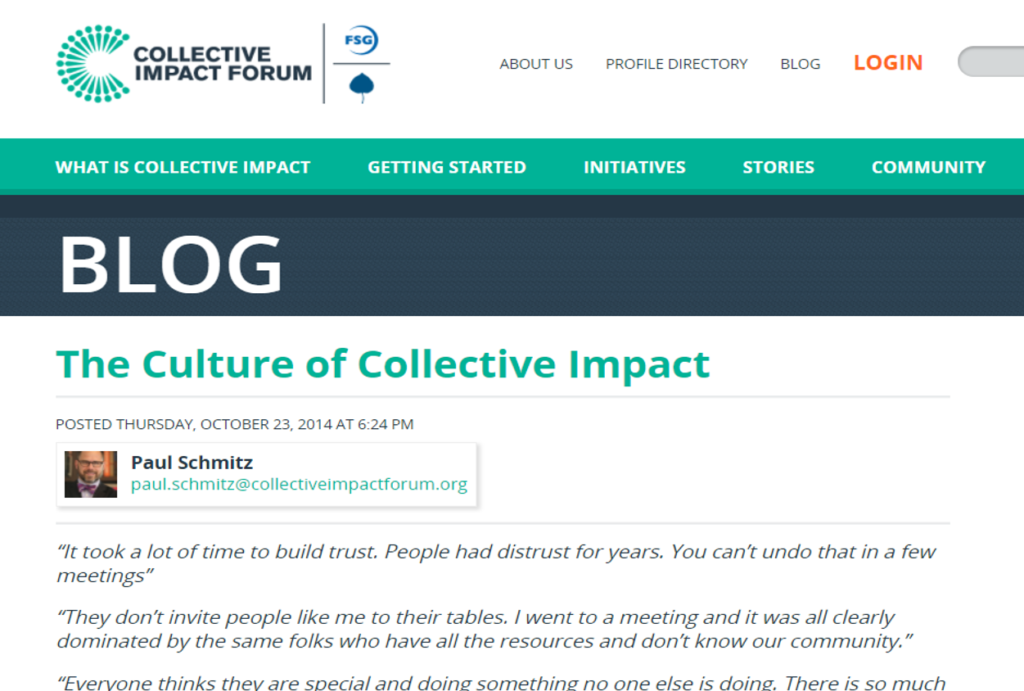
The Culture of Collective Impact
This article presents 5 core values that help leaders at all levels work better together.
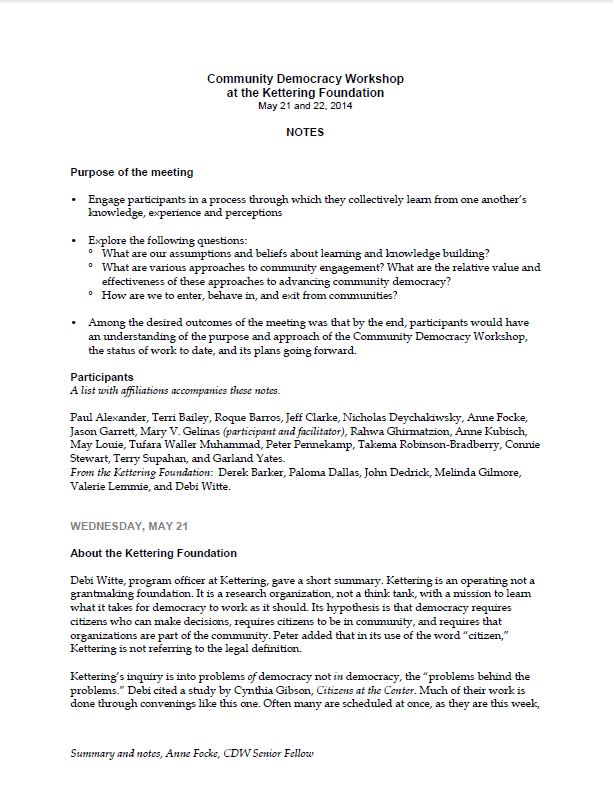
Community Democracy Workshop
The Kettering Foundation hosted the Community Democracy Workshop that explored issues relating to community collaboration. Included were: assumptions and beliefs about learning and knowledge building; the various approaches to community engagement; and, the relative value and effectiveness of these approaches to advancing community democracy. These notes from the meeting provide a structure for delving into these issues and can be adapted for working with any organization.
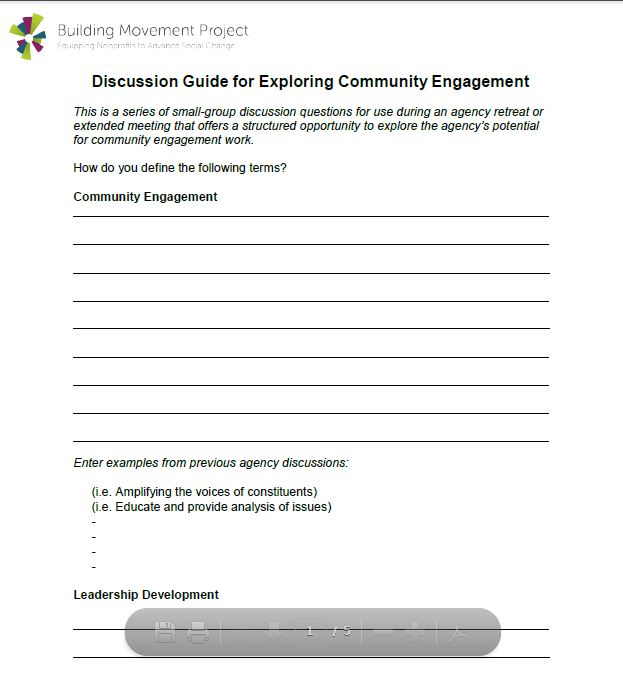
Exploring Community Engagement
This is a series of small-group discussion questions for use during an agency retreat or extended meeting that offers a structured opportunity to explore the agencys potential for community engagement work.
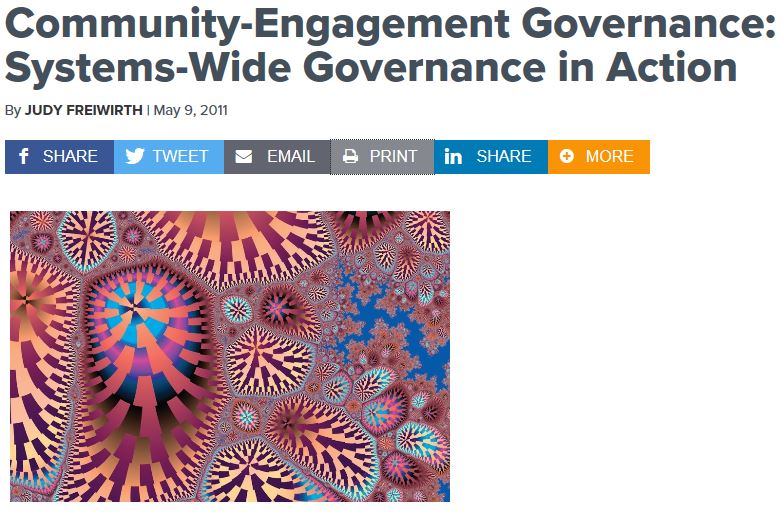
Community-Engagement Governance
This article presents models for governance by stakeholders in contrast to traditional board model. In the Community-Engagement Governance framework, responsibility for governance is shared across the organization, including the organizations key stakeholders: its constituents and community, staff, and the board. Community-Engagement Governance is based on established principles of participatory democracy, self-determination, genuine partnership, and community-level decision making. It can be explored as a way to ensure that engagement is integrated into daily practice.
